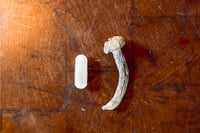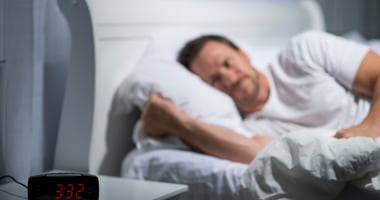Psilocybin Paired With Psychotherapy May Help Patients With Major Depression

Psilocybin, also known as magic mushrooms, may be effective in treating major depressive disorder when paired with supportive psychotherapy, suggests a study in JAMA Psychiatry. The study also found that the beneficial effects of psilocybin may last longer than those of ketamine.
Alan K. Davis, Ph.D., of the Johns Hopkins School of Medicine and colleagues studied 24 adults aged 21 to 75 years with major depressive disorder who received gelcaps of psilocybin at two sessions roughly a week and a half apart. All patients had eight hours of in-person visits with session facilitators to prepare for their first psilocybin session, two to three hours of follow-up meetings after the psilocybin sessions, and 11 hours of supportive psychotherapy over the course of the study. None of the patients were taking antidepressants during the study. During the psilocybin sessions, which lasted approximately one day each time, treatment facilitators were present and available to respond to the patients’ physical and emotional needs.
The patients were divided into two groups: One group, the immediate-treatment group, had their preparatory sessions and treatment immediately after they enrolled in the study; the other group, the delayed-treatment group, received the same preparation and treatment sessions eight weeks after enrollment.
The researchers assessed the severity of the patients’ depression with the GRID-Hamilton Depression Rating Scale (GRID-HAMD) at baseline, at week 5, and at week 8. This means that at weeks 5 and 8, they were comparing GRID-HAMD scores of patients who had already had their psilocybin sessions with those of patients who were still waiting and had not yet received either preparatory visits or treatment.
At baseline, the mean GRID-HAMD score was 22.9 in the immediate-treatment group and 22.5 in the delayed-treatment group. At weeks 5 and 8, the median score in the immediate-treatment group dropped to 8.0 and 8.5, respectively, whereas the median score in the delayed-treatment group remained about the same at 23.8 and 23.5, respectively.
The researchers then followed up with the delayed-treatment group one week and four weeks after the patients received their preparation sessions and treatment. When the researchers looked at the results for all of the patients in the study together, they found that 67% experienced at least a 50% reduction in GRID-HAMD scores one week after receiving their second psilocybin session. Four weeks after their second psilocybin session, 71% had achieved at least a 50% reduction in their scores.
“Although the rapid antidepressant effects of psilocybin are similar to those reported with ketamine, the therapeutic effects are different: ketamine effects typically last for a few days to 2 weeks, whereas the current study showed that clinically significant antidepressant response to psilocybin therapy persisted for at least 4 weeks,” the researchers wrote. “Further studies are needed with active treatment or placebo controls and in larger and more diverse populations.”
For related information, see the Psychiatric News article “Psychedelics for Psychiatric Disorders: More Research Needed.”
Register for Webinar on 2021 Changes to Billing and Documentation for Outpatient E/M Services
Register to attend this webinar on Tuesday, November 17 at 8 p.m. ET to learn about the changes to billing and documentation for Outpatient E/M services that will take effect on January 1, 2021. The webinar will include how to select the appropriate CPT code based on medical decision making or time, a review of the necessary documentation, and a Q&A portion with APA’s CPT coding and documentation experts.
Don't miss out! To learn about newly posted articles in Psychiatric News, please sign up here.





